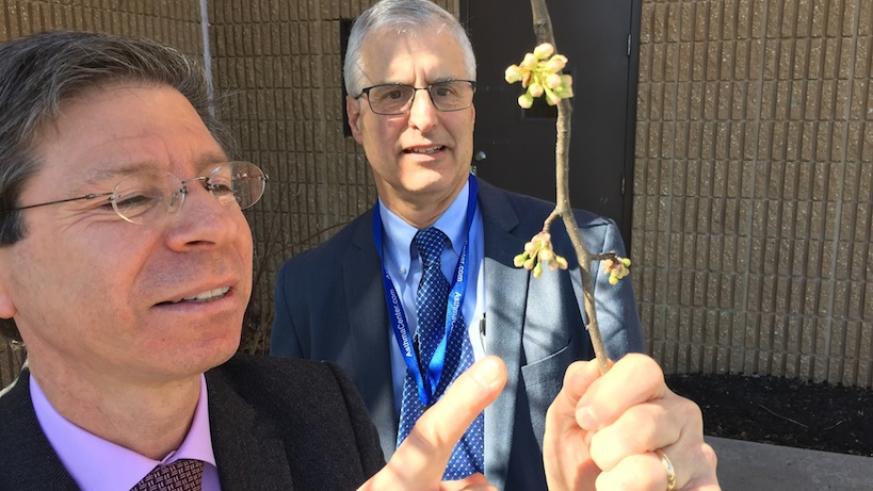Metro Philadelphia’s Focus on The 2017 Spring Allergy Season with The Asthma Center

April 13, 2017
As published on Metro.us by Sam Newhouse
Philadelphians are flocking to enjoy more time outdoors with the arrival of spring. But ironically, the warm temperatures can mean suffering for people with seasonal allergies.
With a sudden spike in temperatures, April has become a high pollen month in the Philadelphia region, said Dr. Donald Dvorin, co-founder of The Asthma Center.
“This week, the trends are much higher for tree pollen,” Dvorin said Thursday. “Patient reports are definitely worse. Our patients are coming in very sick with upper respiratory symptoms and some asthma symptoms, such as wheezing.”
The Asthma Center daily posts online what the pollen count in Philadelphia and South Jersey is like. And warm weather always brings high pollen counts to the Delaware Valley. Trees begin to open up and release pollen when temps go above 40 degrees.
People exposed to high pollen can experience flu-like symptoms including headaches, sore throat, and lethargy.
Persistent cough, “eye twitching” and sinus headaches are also among the most common complaints in 2017, Dvorin said.

This April’s pollen count is not significantly higher than past years. But this year’s unusual winter, with spikes of spring-like temperatures followed by bitter cold, did cause irregularities in the pollen cycle, Dvorin said.
Maple trees are producing less pollen than usual, as their release period coincided with the cold weather, while oak trees are producing more, he said.
“In February, when we had those warm days, we saw a sudden surge of pollen. The early tree pollen went up dramatically,” Dvorin said. “That’s very unusual for February, but that pulled back as son as the cold hit in February and March.”
Dvorin advised anyone who suffers from adverse reactions to the pollen to take antihistamines and nasal sprays if possible. Those who are symptomatic can check pollen counts daily on The Asthma Center’s website and plan to limit outdoors time when the count is high, he said. And anyone who is symptomatic should try to change their clothing and if possible take a shower when they get home, to avoid exposure to pollen that may have accumulated on their clothing over the course of the day.












